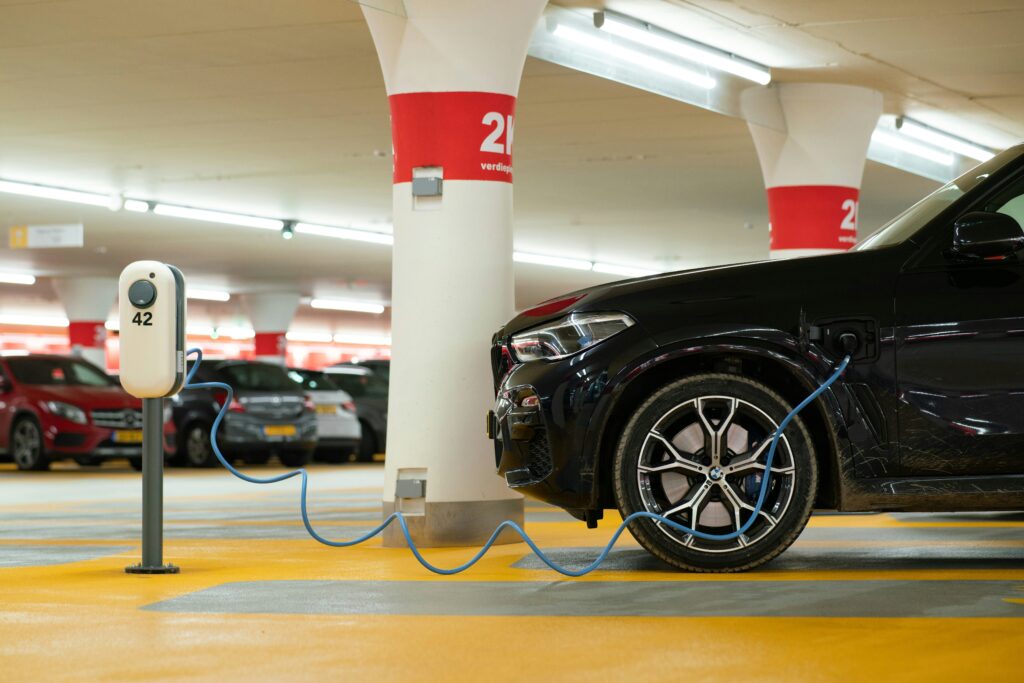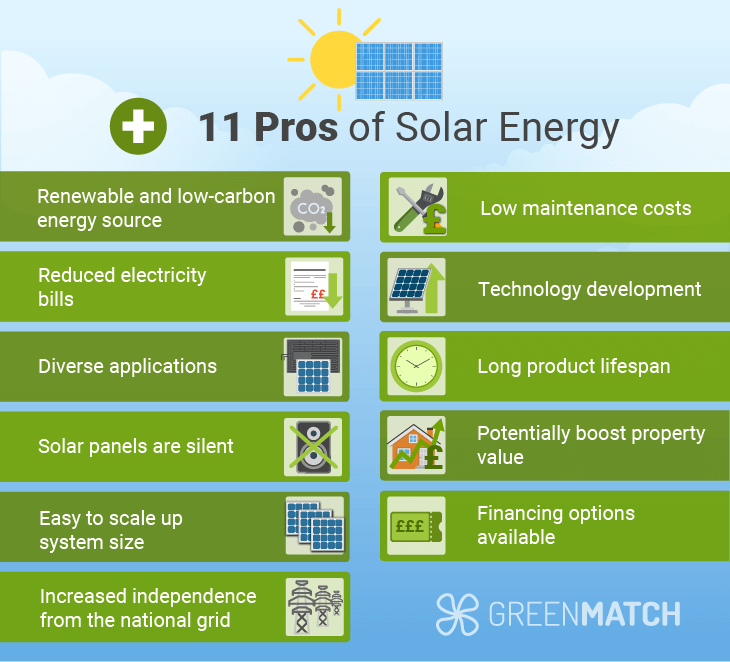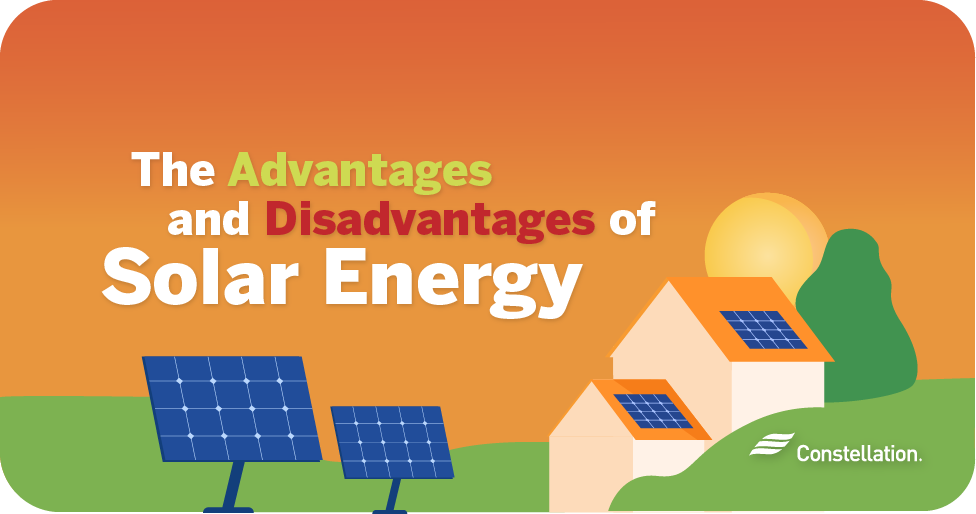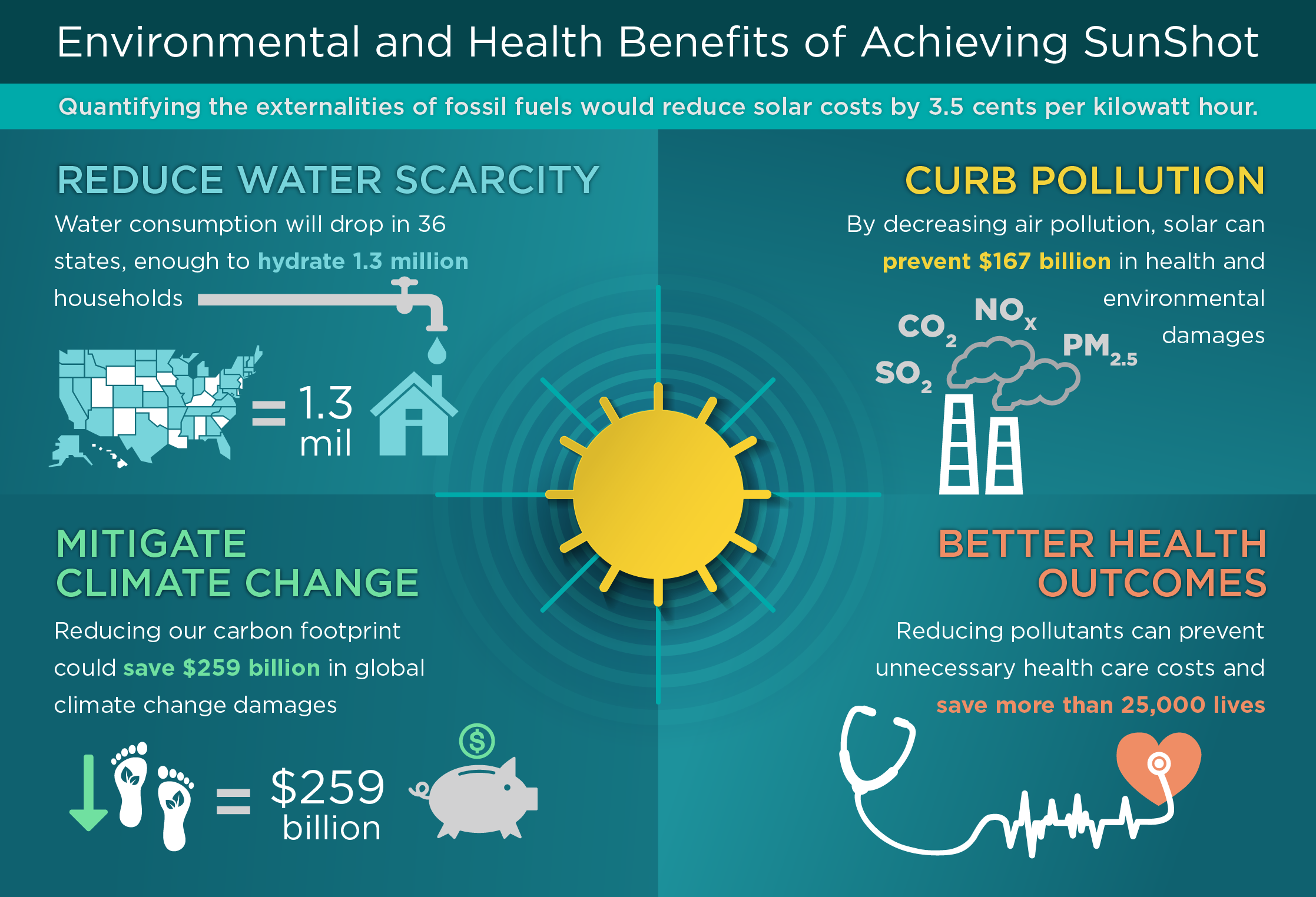The benefits of solar energy include reduced electricity costs and a positive environmental impact. Solar energy is a renewable and sustainable source that harnesses the sun’s energy to generate electricity, reducing reliance on fossil fuels and decreasing greenhouse gas emissions.

Introduction (Approximately 120 words): Solar energy has emerged as a game-changer in the field of renewable energy. Harnessing the power of the sun through photovoltaic cells, solar energy offers numerous benefits that are shaping our energy landscape for the better. One of the key advantages of solar energy is its ability to reduce electricity costs for both residential and commercial consumers.
By installing solar panels, individuals and businesses can generate their own electricity, decreasing their dependence on traditional energy sources and cutting down on monthly bills. Moreover, solar energy is an environmentally friendly choice as it produces no harmful emissions and does not contribute to climate change. By embracing solar energy, we can actively contribute to a cleaner and more sustainable future.
Solar energy offers numerous benefits, making it an increasingly popular choice for powering homes, businesses, and communities. Here are some of the key benefits of solar energy:
- Clean and Renewable:
- Solar energy is a clean, renewable energy source that produces no greenhouse gas emissions or air pollutants during operation. By harnessing sunlight, solar panels generate electricity without relying on finite fossil fuels, helping to mitigate climate change and reduce environmental impact.
- Energy Independence:
- Solar energy provides energy independence by enabling homeowners, businesses, and communities to generate their electricity on-site. By producing electricity from sunlight, solar panel owners reduce their reliance on grid-supplied electricity, which is subject to price fluctuations and supply disruptions.
- Cost Savings:
- Solar energy offers significant cost savings over the long term. Once installed, solar panels can generate electricity for 25 years or more with minimal operating costs. Homeowners and businesses can save on electricity bills by generating their power from solar energy, especially as utility rates continue to rise over time.
- In addition to direct savings on electricity bills, solar panel owners may also benefit from financial incentives, tax credits, rebates, and performance-based incentives offered by governments, utilities, and other organizations to offset the upfront cost of solar panel installation.
- Low Maintenance:
- Solar panels require minimal maintenance, as they have no moving parts and are designed to withstand outdoor conditions. Routine cleaning to remove dirt, dust, and debris is typically the only maintenance required to ensure optimal performance.
- With proper installation and periodic inspections, solar panel systems can operate reliably and efficiently for 25 years or more, providing long-term energy savings and peace of mind.
- Job Creation and Economic Development:
- The solar energy industry creates jobs and stimulates economic growth by supporting manufacturing, installation, and maintenance activities. As solar energy adoption continues to expand, it generates employment opportunities across various sectors, including manufacturing, construction, engineering, and professional services.
- Solar energy projects also contribute to local economies by generating tax revenue, attracting investment, and fostering innovation in renewable energy technologies.
- Environmental Benefits:
- Solar energy helps to reduce greenhouse gas emissions, air pollution, and dependence on fossil fuels, thereby mitigating environmental degradation and promoting sustainable development. By displacing electricity generated from coal, natural gas, and other fossil fuels, solar energy contributes to cleaner air, improved public health, and a healthier environment for future generations.
- Scalability and Versatility:
- Solar energy systems are scalable and adaptable to a wide range of applications, from small residential installations to large utility-scale projects. Solar panels can be installed on rooftops, ground-mounted arrays, solar carports, and other structures, making them suitable for urban, suburban, and rural settings.
- Solar energy can also be integrated with energy storage systems, smart grids, and other renewable energy technologies to enhance reliability, resilience, and flexibility in energy supply and distribution.
Overall, solar energy offers a multitude of benefits, including environmental sustainability, cost savings, energy independence, job creation, and economic development. As solar technology continues to advance and costs decline, solar energy is poised to play a vital role in transitioning towards a cleaner, more sustainable energy future.
1. Renewable And Sustainable
Renewable and sustainable energy sources are pivotal components of the transition towards a more environmentally friendly and resilient energy landscape. In today’s world, where the impacts of climate change and resource depletion are increasingly evident, the importance of renewable and sustainable energy cannot be overstated. These energy sources offer a path towards reducing greenhouse gas emissions, mitigating environmental degradation, enhancing energy security, and fostering economic development. In this exploration, we delve into the concepts of renewable and sustainable energy, their significance, and their potential to shape a more sustainable future for generations to come.
Solar energy is a renewable and sustainable source of power that offers numerous benefits for both the environment and consumers.
1.1 Environmentally Friendly
Switching to solar energy helps reduce the carbon footprint and combat climate change. Fossil fuels emit harmful greenhouse gases when burned, contributing to air pollution and global warming. Conversely, solar power generates electricity without producing any emissions, making it a clean and eco-friendly alternative.
1.2 Endless Supply
One key advantage of solar energy is its virtually limitless supply. Unlike finite fossil fuels, the sun continuously radiates an abundance of energy. Solar panels capture this energy and convert it into electricity, providing a consistent and renewable power source.
2. Cost Savings
Cost savings are a significant benefit associated with various initiatives, strategies, or technologies aimed at reducing expenses while maintaining or improving quality or efficiency. In the context of energy, cost savings refer to the reduction in expenses related to energy consumption, often achieved through efficiency measures, renewable energy adoption, or other sustainable practices. Here’s a detailed exploration of cost savings in the context of energy:
One of the most significant benefits of solar energy is the potential for cost savings. As compared to traditional sources of energy such as fossil fuels, solar power offers a number of advantages that can have a positive impact on your finances. In this section, we will explore two key areas where solar energy can help you save money: reduced energy bills and return on investment.
2.1 Reduced Energy Bills
By installing solar panels on your home or business property, you can significantly reduce your monthly energy bills. Solar power generates electricity from sunlight, which means that once you have made the initial investment in solar panels, your energy source becomes virtually free. As a result, you can greatly reduce or even eliminate your reliance on traditional electricity providers. This can lead to substantial savings in the long run.
Furthermore, solar energy systems are designed to generate power during peak usage times, which often coincide with the highest tariffs charged by electricity providers. By generating your own electricity during these times, you can avoid or minimize expensive peak rate charges. This can make a substantial difference in your overall energy costs, potentially saving you hundreds or even thousands of dollars annually.
2.2 Return On Investment
Investing in solar energy can provide a positive return on investment (ROI) over time. While the initial cost of installing solar panels may seem high, it is important to consider the long-term financial benefits. Solar panels typically have a lifespan of 25 to 30 years, during which you can effectively recoup your initial investment through energy savings. As utility rates continue to rise, the savings from solar energy become even more significant.
In addition, many governments and financial institutions offer incentives and rebates for solar installations, which can further enhance your ROI. These incentives can include tax credits, grants, and net metering programs that allow you to sell excess energy back to the grid. By taking advantage of these opportunities, you can expedite your payback period and maximize your financial gains.
Moreover, installing solar panels can also increase the value of your property. Studies have shown that homes with solar energy systems tend to sell faster and at higher prices compared to homes without solar panels. This means that not only can you enjoy the benefits of solar energy while you live in your home, but you can also potentially recoup a portion of your initial investment when you decide to sell.
3. Energy Independence
Solar energy offers the benefit of energy independence, allowing individuals and communities to produce their own power and reduce reliance on fossil fuels. Harnessing the renewable energy source of the sun provides a sustainable and environmentally friendly solution for meeting energy needs.
Energy independence is a concept that has gained increasing prominence as societies seek to reduce their reliance on traditional fossil fuels and transition towards more sustainable and resilient energy sources. It refers to the ability of individuals, communities, or nations to produce their energy domestically, without relying on external sources or imports. Achieving energy independence is often associated with greater autonomy, security, and sustainability in meeting energy needs. In this exploration, we delve into the concept of energy independence, its significance, and the pathways towards realizing it in an ever-evolving energy landscape.
Energy independence is one of the key benefits of solar energy. By harnessing the power of the sun, we can reduce our reliance on fossil fuels and achieve a more sustainable future. This section will explore two important aspects of energy independence: reduced reliance on fossil fuels and increased security.
3.1 Reduced Reliance On Fossil Fuels
Solar energy allows us to significantly reduce our dependence on fossil fuels, which are finite resources that harm the environment and contribute to climate change. By switching to solar power, we can decrease our carbon footprint and create a cleaner, more sustainable energy system.
Here are a few ways in which solar energy helps reduce our reliance on fossil fuels:
- Decreased CO2 emissions: Solar energy produces electricity without emitting harmful greenhouse gases. By utilizing solar power, we can reduce the amount of CO2 released into the atmosphere, which helps combat climate change.
- Less reliance on nonrenewable resources: Fossil fuels such as coal, oil, and natural gas are finite resources that will eventually run out. Solar energy, on the other hand, comes from a renewable source – the sun – ensuring a continuous and abundant supply of power.
- Reduced air pollution: The extraction, transportation, and burning of fossil fuels contribute to air pollution, which has detrimental effects on human health and the environment. Solar energy production, on the other hand, is a clean process that helps improve air quality and reduce pollution-related health issues.
3.2 Increased Security
A major advantage of solar energy is the increased security it offers. This security can be viewed from different perspectives, including national security and energy security.
National Security: By transitioning to solar power, countries can reduce their dependence on foreign energy sources and enhance their national security. Reliance on imported fossil fuels can make a nation vulnerable to political and economic instability in other parts of the world. Solar energy provides a domestic source of clean power, reducing the need for importing energy resources.
Energy Security: Solar energy is a decentralized form of power generation that can be harnessed almost anywhere, providing energy security at the individual, community, and regional levels. With solar panels installed on rooftops or in local solar farms, individuals and communities become less reliant on centralized grids, ensuring that they have access to electricity even during power outages or grid failures.
In conclusion, energy independence is a significant benefit of solar energy. By reducing our reliance on fossil fuels and increasing security, solar power enables us to create a more sustainable, resilient, and secure energy future.”\t

Credit: www.greenmatch.co.uk
4. Job Creation
- Certain industries and sectors are known for their capacity to create large numbers of jobs. Industries such as healthcare, education, renewable energy, information technology, and advanced manufacturing have significant job creation potential due to their expanding markets, technological advancements, and evolving consumer needs.
- Government policies and investments that support industry growth, innovation, and workforce development can further enhance job creation and economic prosperity.
Job creation is one of the significant benefits of solar energy. As the solar industry continues to grow, it plays a pivotal role in generating employment opportunities, contributing to economic prosperity.
4.1 Growth In The Solar Industry
The rapid expansion of the solar industry leads to an increased demand for skilled workers across various sectors such as manufacturing, installation, and maintenance of solar panels.
- This growth presents diverse job prospects for individuals with backgrounds in engineering, technology, and construction, along with opportunities for specialized solar training programs.
- The rise of solar companies and supporting businesses further stimulates job creation, fostering a dynamic job market.
4.2 Economic Benefits
The economic benefits resulting from the employment surge in the solar industry are substantial, contributing to a more robust and sustainable economy.
| Benefits | Impacts |
|---|---|
| Increased consumer spending | Stimulates local businesses |
| Boost to infrastructure development | Enhances community growth |
| Greater tax revenue | Supports public services and education |
As businesses grow, expand operations, or enter new markets, they often require additional labor to meet increased demand for goods and services. This leads to the creation of new jobs across various sectors, including manufacturing, services, construction, and technology.
5. Environmental Benefits
Solar energy offers numerous environmental benefits. It is a clean, renewable source of power that reduces greenhouse gas emissions, decreases reliance on fossil fuels, and helps combat climate change. Additionally, solar energy does not contribute to air or water pollution, making it a sustainable and eco-friendly option for generating electricity.
Solar energy not only provides numerous benefits for individuals and communities but also for the planet we call home. Harnessing the power of the sun offers a range of environmental advantages that contribute to a greener and sustainable future. In this section, we will explore two key environmental benefits of solar energy: Reduced Carbon Footprint and Improved Air and Water Quality.
5.1 Reduced Carbon Footprint
Solar energy is a clean and renewable source of power that produces virtually no greenhouse gas emissions. By reducing our reliance on fossil fuels, solar energy helps to decrease our carbon footprint and combat the detrimental effects of climate change. Unlike conventional electricity generation from fossil fuels, photovoltaic (PV) cells and solar panels rely on sunlight to produce electricity, eliminating the need for burning fossil fuels and the release of harmful pollutants into the atmosphere.
The transition to solar energy reduces carbon dioxide (CO2), sulfur dioxide (SO2), and nitrogen oxide (NOx) emissions, which are known to contribute to global warming, air pollution, and acid rain. By adopting solar power as an alternative energy source, we can take a crucial step towards reducing the threat of climate change and creating a more sustainable future for generations to come.
5.2 Improved Air And Water Quality
Solar energy also plays a significant role in improving air and water quality. The traditional methods of generating electricity, such as coal-fired power plants, release pollutants into the air, leading to harmful effects on human health and the environment. These pollutants, including particulate matter, sulfur dioxide, and nitrogen oxides, contribute to a range of health issues, including respiratory problems, cardiovascular diseases, and even premature death.
By harnessing solar power, we can mitigate these risks and enjoy cleaner air and water. Solar energy systems produce electricity without emitting pollutants, helping to preserve and protect our environment. Improved air quality means a reduced incidence of respiratory diseases and fewer hospital visits, leading to enhanced overall well-being and healthier communities. Furthermore, solar energy reduces the strain on water resources, as it requires far less water for operation compared to conventional power plants.
In summary, solar energy offers undeniable environmental benefits, including a reduced carbon footprint and improved air and water quality. By making the switch to solar power, we can contribute to a cleaner, healthier planet, and pave the way for a sustainable future.

Credit: www.constellation.com
6. Grid Resilience
Solar energy offers grid resilience by diversifying the energy supply and reducing dependence on centralized power. This can mitigate the impact of grid disruptions and reduce the risks of widespread power outages, ensuring a more reliable and stable energy infrastructure.
Moreover, solar energy can help reduce transmission and distribution losses, making the grid more efficient and cost-effective.
Solar energy brings numerous benefits to the grid, enhancing its resilience and ensuring a reliable and sustainable energy supply. Two key aspects of grid resilience in relation to solar energy are distributed generation and minimizing blackouts.
6.1 Distributed Generation
Distributed generation refers to the production of electricity from multiple small-scale sources, such as solar panels installed on rooftops. This decentralized approach allows for energy generation closer to the point of consumption, reducing the need for long-distance transmission lines. As a result, distributed generation enhances grid resilience by minimizing the negative impacts of system-wide outages.
With distributed solar energy, each individual solar power system acts as a mini power plant, contributing to the overall electricity supply. This redundancy reduces the risks associated with single points of failure in the grid, such as equipment failures or natural disasters.
The distributed nature of solar energy also helps optimize the utilization of existing infrastructure. By generating electricity locally, solar power reduces the load on transmission and distribution systems. This alleviates strain on the grid, increasing its capacity to handle peak demand periods.
6.2 Minimizing Blackouts
Solar energy plays a vital role in minimizing blackouts, which occur when the grid experiences a significant power failure. Traditional energy sources, like fossil fuels, are prone to disruptions due to factors such as fuel supply constraints, equipment failures, or extreme weather events.
In contrast, solar power relies on a renewable energy source—the sun—which is abundant and predictable. This predictability increases grid resilience by ensuring a more stable and uninterrupted energy supply. Even during extreme weather events, solar energy systems can continue to operate as long as sunlight is available, minimizing the risk of blackouts.
In addition, solar energy can be combined with energy storage technologies, such as batteries, to further enhance grid resilience. Energy storage allows excess solar power generated during the day to be stored and utilized during periods of high demand or when solar generation is limited, such as during clouds or at night.
Conclusion
In summary, solar energy strengthens grid resilience through distributed generation and its ability to minimize blackouts. By decentralizing electricity production and harnessing the power of the sun, solar energy ensures a more reliable, sustainable, and resilient energy supply.
7. Technological Advancements
Solar energy has seen remarkable advancements in technology, driving the widespread adoption of solar power as a reliable and sustainable energy source. These advancements have led to numerous benefits, making solar energy an increasingly viable option for both residential and commercial usage. Let’s delve into the technological advancements that have contributed to the prominence of solar energy.
7.1 Enhanced Efficiency
The continuous technological improvements in solar panels have significantly enhanced their efficiency. Innovations such as the development of high-efficiency solar cells and light-trapping techniques have substantially increased the amount of solar energy that can be converted into electricity. This increase in efficiency directly translates to greater energy production and higher cost-effectiveness, making solar power an increasingly attractive choice for energy consumers.
7.2 Integration With Smart Homes
The integration of solar energy systems with smart home technology has become increasingly prevalent. This allows homeowners to monitor and manage their energy consumption more effectively, optimizing the usage of solar power and reducing reliance on the traditional grid. With the rise of smart inverters and energy management systems, solar energy can seamlessly integrate with smart homes to provide sustainable and convenient power solutions.

Credit: www.energy.gov
Frequently Asked Questions For What Are The Benefits Of Solar Energy
How Does Solar Energy Work?
Solar energy works by converting sunlight into electricity through the use of solar panels. These panels contain photovoltaic cells that absorb the sunlight and generate an electric current.
What Are The Environmental Benefits Of Solar Energy?
Solar energy is a clean and renewable source of energy, which means it produces no harmful emissions and helps to reduce greenhouse gas emissions, air pollution, and dependency on fossil fuels.
Are There Financial Incentives For Using Solar Energy?
Yes, there are various financial incentives available for using solar energy, such as tax credits, rebates, and net metering. These incentives can significantly reduce the cost of installing and using solar panels.
Conclusion
The benefits of solar energy are abundant. It offers a sustainable and environmentally friendly power source, reduces utility costs, and provides energy independence. Additionally, solar energy contributes to the fight against climate change and fosters economic growth. Embracing solar power can lead to a more sustainable and prosperous future for us all.